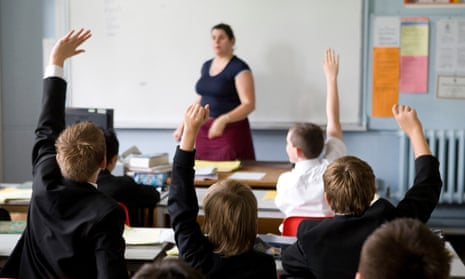NHS care of children and young people is the service’s biggest weakness and so inadequate that it is causing too many tragedies, the health secretary, Jeremy Hunt, has said.
Hunt has pledged to improve the diagnosis and treatment of troubled children by NHS children and adolescent mental health services (CAMHS). Problems need to be identified earlier so that young people no longer struggle with debilitating conditions for years before receiving help, he said.
“I think we are letting down too many families and not intervening early enough when there is a curable mental health condition, which we can do something about when a child is eight or nine, but if you leave it until they are 15 or 16, it’s too late,” Hunt told the Health Service Journal.
Referring to the quality of care CAMHS teams provide, Hunt said: “I think this is possibly the biggest single area of weakness in NHS provision at the moment. There are too many tragedies because children develop eating disorders or psychosis or chronic depression, which is then very difficult to put right as they get older.”
The Guardian revealed this month that almost a quarter of a million children and young people aged 18 and below are being treated for mental health problems by specialist NHS services in England every month. However, that is a significant underestimate of the true scale of the demand for treatment, as only 60% of NHS mental health trusts supplied data to NHS Digital, which collated the figures.
Hunt wants schools and CAMHS teams to work more closely together and for more schools to have a CAMHS specialist to work with troubled children. “There are big problems with the capacity in CAMHS services, but it’s not just there, but what happens in schools. Very few schools have a full-time CAMHS worker,” he said.
Recent reports, including one by the Children’s Commissioner for England, found that up to 28% of children and young people referred to CAMHS teams are refused treatment because they are not ill enough to qualify.
Young Minds welcomed Hunt’s remarks on better school-NHS liaison, but warned that much more wide-ranging action was needed. “It’s vital that teachers can consult mental health experts about their concerns and that if a child needs specialist support, they can be referred quickly and smoothly,” said Dr Marc Bush, the charity’s chief policy adviser.
“The reality is that far more needs to be done. Many local CAMHS services are severely overstretched, with long waiting times and high thresholds for treatment.”
The government promised to put £250m more into improving CAMHS care for each year of this parliament. But Bush said parents and young people did not believe that it was making any difference at the NHS frontline.
Hunt also urged hospitals to hire more nurses on permanent contracts and rely less on expensive agency workers. However, the Royal College of Nursing cast doubt on the likelihood of that happening, given that an estimated 24,000 nursing posts are vacant across the NHS.
Meanwhile Prof Jane Dacre, the president of the Royal College of Physicians, has warned that the NHS “is in deep trouble” because it has too few doctors, is underfunded and facing the most intense pressure on services.
The junior doctors’ dispute and Brexit vote “have potentially serious implications for physicians and the wider health world today. There has been an increasing realisation that the NHS is in trouble, deep trouble,” she said.
Junior doctors have been left “feeling undervalued, disempowered and downtrodden” as a result of their year-long battle with Hunt, she added.
